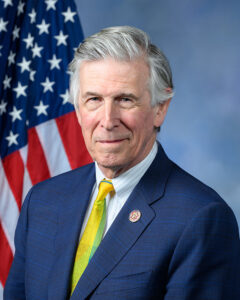At 93, Walter Mess is of an age where he wouldn’t know a Google if it bit him.
At 93, Walter Mess is of an age where he wouldn’t know a Google if it bit him.
But that was before last Thursday, when the National Archives released previously classified files that identified the longtime Falls Church resident and civic leader with some 24,000 other people who served during World War II in the Office of Strategic Services (OSS), the international spy network that was the forerunner of the Central Intelligence Agency (CIA).
As a result, Mess now knows that his name will turn up nearly 9,000 times when someone enters “Walter Mess OSS Falls Church” in the Google search engine. That’s because he is listed alongside more famous people like TV chef Julia Childs, Supreme Court Justice Arthur Goldberg, historian Arthur Schlesinger Jr., actor Sterling Hayden and Chicago White Sox catcher Moe Berg.
“They were soldiers, actors, historians, athletes, professors, reporters,” the Associated Press wrote in a story that appeared in newspapers around the world and quoted Mess. “But for several years during World War II, they were known simply as the OSS. They studied military plans, created propaganda, infiltrated enemy ranks and stirred resistance among foreign troops.”
Mess, who was recruited in 1938 by the covert agency that later became the OSS while studying for a doctor of law degree at Catholic University, told the AP that he had kept quiet about his clandestine wartime activities in Europe, North Africa and Burma for more than 50 years.
“I was told to keep my mouth shut,” said Mess, who kept his vow of silence and didn’t even tell his wife of 62 years until a few years before her death in 2002. “She was so angry she didn’t speak to me for a month,” he said.
 Mess was newly married in 1941 and had just moved into his new home on Seaton Lane in the Virginia Forest section – he paid $400 for the lot and the street was a dirt road – when the Japanese attacked Pearl Harbor. In January, 1942, he enlisted in the Army and was commissioned as a 2nd lieutenant. Two years later, he was recruited by the newly-created OSS, partly because he learned how to sail as a boy growing up in Alexandria, and the OSS was active in Asia where water was the only means of transportation.
Mess was newly married in 1941 and had just moved into his new home on Seaton Lane in the Virginia Forest section – he paid $400 for the lot and the street was a dirt road – when the Japanese attacked Pearl Harbor. In January, 1942, he enlisted in the Army and was commissioned as a 2nd lieutenant. Two years later, he was recruited by the newly-created OSS, partly because he learned how to sail as a boy growing up in Alexandria, and the OSS was active in Asia where water was the only means of transportation.
He spent the rest of the war working with local populations in Burma and Thailand to gather intelligence and conduct guerilla operations against the Japanese. He was part of the first unit in U.S. military history created specifically for the purpose of conducting unconventional warfare behind enemy lines, and his voluminous personal files contain photographs of him and the crew of the 40-foot speedboat he commanded that operated along the Burma coast and in waterways in North Burma.
After the war, Mess returned home to his wife and a four-year-old daughter he’d never seen, and began a highly successful real estate, mortgage and insurance business. He and his wife raised two more daughters and a son as they watched Virginia Forest – and Falls Church – grow as rapidly as his family and become crowded with homes and businesses.
On Monday, he sat in the screened porch of his home and talked about his remarkable life and career.
“I was practicing law and handling foreclosed property,” he said. “Practically every hotel in Washington was being foreclosed, along with 150 office and apartment buildings. I was renting space to the U.S. government on Farragut Square for sixty cents a square foot. Today, it’s $60.”
An avid outdoorsman who retains the energy of a man in his 70’s and still does his own yardwork, Mess says his wartime exploits were dangerous, challenging, exciting and even “fun.” But he downplays his accomplishments, even while sitting beneath a plaque that displays four Bronze Stars and a half-dozen other military medals and honors. Several years ago, he was made an honorary member of the Green Beret special forces unit.
“They’re making a great deal out of this because of Julia Childs and the other famous people,” he said, referring to the release of some 750,000 pages of OSS documents. “But what you must understand is that I’m nothing. I’m just a little piece of the story, just a cog in the wheel. The only reason they pointed me out is that I’ve outlived the rest of the bastards.”
Nevertheless, there are still a lot of people who want to hear his story. An historian for the Army Special Operations Command at Fort Bragg, N.C., interviewed Mess last weekend for the Journal of Army Special Operations History. In a recent issue, the historian wrote about how Mess’s unit, the paramilitary Detachment 101 of the OSS, was instrumental in the use of aerial resupply to overcome the logistical difficulties of operating in north Burma.
“It is relevant today because the pioneering efforts in the skies over north Burma influenced how aerial resupply would be done in numerous post-WWII conflict,” he wrote. “North Burma was the one major American operational theater where aerial resupply to non-airborne ground forces was a routine practice.”
Mess says he promised himself that he would volunteer 50 percent of his time to his community if he survived the war, and promptly set about doing that when he returned home.
His list of accomplishments are evident in projects all over Falls Church and Northern Virginia. They include his leadership in creating the Falls Church Community Park, construction of the Falls Church City Hall and the Mary Riley Styles public library, and establishment of the Northern Virginia Regional Park Authority. He was the longest serving public official in Northern Virginia when he retired in 2005 after 30 years as chairman of the area’s regional park authority, which named its Fairfax Station headquarters after him.
Honored by the Falls Church City Council with a “Walter Mess Day” on his 90th birthday in December, 2004, Mess says he’s proudest of his family, which includes a dozen grandchildren and half a dozen great grandchildren, whose photos he proudly displays in his home.
Maybe the next time they visit, he’ll ask them to show him how to Google up his name.
(Editor’s Note: Albert Eisele is editor-at-large of The Hill and a neighbor of Walter Mess since 1967.)











